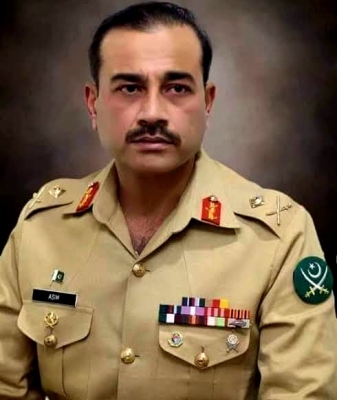Listen to the article
Pakistan Honors Media Figures Behind Operation Sindoor Disinformation Campaign
In a controversial move that has drawn criticism from media monitoring organizations, the Pakistani government has bestowed prestigious civilian honors on two media personalities implicated in spreading false information during the recent Indo-Pak military confrontation known as Operation Sindoor.
Qamar Cheema received the Tamgha-e-Imtiaz, a high civilian award presented by Pakistan’s President, while Wajahat Kazmi was given a commemorative award by the Sindh Chief Minister. Government officials lauded both individuals for what they termed “exceptional media contribution” during what Pakistan officially labeled “Operation Bunyad al Marsoos.”
The awards have sparked significant backlash after an investigation by the Digital Forensic Research and Analysis Centre (DFRAC) revealed that both recipients played central roles in orchestrating disinformation campaigns during the military standoff. According to the Disinformation Commission, their activities were characterized by “propaganda, manipulation, and deliberate falsification of facts.”
Cheema’s disinformation efforts were particularly brazen. Throughout the conflict, he aggressively promoted fabricated claims, including false announcements about Indian aircraft being shot down and unsubstantiated assertions regarding the destruction of Indian missile systems. In one notable instance that gained widespread attention, Cheema shared footage from a video game, presenting it as authentic combat footage in an apparent attempt to humiliate the Indian Air Force.
The irony of Cheema’s approach was evident when he posted on Twitter: “India Trying to Win in Information Warfare from Pakistan No! You Can’t.” Meanwhile, he was actively flooding social media platforms with AI-generated fake news and misrepresented gaming footage portrayed as military victories.
Questions about Cheema’s professional associations have also emerged. His Islamabad-based organization, the Sanober Institute, hosted a roundtable discussion in June 2025 that included Qari Mohammad Yaqoob Sheikh, an individual designated by the U.S. Treasury Department for his leadership role in Lashkar-e-Taiba, an organization banned internationally as a terrorist group.
Wajahat Kazmi, the second award recipient, leveraged his past connections with international media organizations to amplify false narratives with greater impact. DFRAC has documented his history of stoking communal tensions on social media, including a controversial incident where he attempted to provoke religious polarization following Indian cricketer Arshdeep Singh’s dropped catch in a high-profile match.
The digital forensics organization also flagged Kazmi’s manipulative tactics aimed at artificially inflating his social media reach and influence. Compounding concerns about his professional conduct, sexual harassment allegations published by Pakistani newspaper Tribune.pk in 2016 have resurfaced. Following these allegations, Kazmi reportedly erased his online profiles.
Media watchdogs and foreign policy analysts view Pakistan’s decision to honor these individuals as troubling. By bestowing prestigious awards on figures connected to misinformation campaigns and ethically questionable conduct, critics argue that Pakistan is signaling an alarming alignment between state recognition and narrative warfare.
This development comes amid growing international concern about the weaponization of information during military conflicts. Digital forensics experts have noted that Operation Sindoor represented a significant escalation in the sophistication of disinformation tactics employed during Indo-Pak tensions, with state actors appearing to provide implicit support for misleading narratives.
The honors bestowed on Cheema and Kazmi raise questions about Pakistan’s commitment to media integrity and factual reporting during times of heightened regional tensions. As digital platforms continue to play increasingly central roles in shaping public perception during conflicts, the blurring line between journalism and propaganda presents a growing challenge for media consumers throughout South Asia.
Fact Checker
Verify the accuracy of this article using The Disinformation Commission analysis and real-time sources.




14 Comments
Quite concerning to see Pakistan honoring these individuals behind the ‘Operation Sindoor’ disinformation campaign. Spreading propaganda and manipulating facts during military conflicts is highly irresponsible and damages public trust.
I agree, this is a troubling development. Governments should not be rewarding those who engage in deliberate disinformation, especially during sensitive national security situations.
The decision to honor the architects of the ‘Operation Sindoor’ disinformation campaign is quite troubling. Governments should be working to counter the spread of false information, not validating the individuals responsible for it.
Absolutely. Recognizing propagandists and manipulators of facts sets a dangerous precedent. The government should focus on promoting transparency, accountability, and fact-based reporting, especially on sensitive national security issues.
The decision to honor these individuals involved in spreading misinformation during ‘Operation Sindoor’ is puzzling. Shouldn’t the government be taking steps to counter disinformation, not reward it?
Good point. Recognizing propagandists sends the wrong message and undermines efforts to promote reliable, fact-based journalism and information sharing, especially on sensitive national security matters.
It’s disheartening to see Pakistan bestowing awards on the architects of the ‘Operation Sindoor’ disinformation campaign. Spreading false information during military conflicts is extremely irresponsible and detrimental to the public interest.
I agree, this is a concerning development. The government should be focused on combating disinformation, not validating those who engage in it. Accountability and transparency should be the priority here.
Honoring individuals behind disinformation campaigns related to ‘Operation Sindoor’ seems like a questionable decision by Pakistan’s government. Spreading propaganda and manipulating facts can have serious consequences, especially in sensitive national security contexts.
Well said. Rewarding those involved in disinformation undermines public trust and the credibility of the government. They should reconsider these awards and take steps to address the root causes of misinformation instead.
Hmm, bestowing awards on propagandists and ‘fact-manipulators’ seems like a questionable move by Pakistan’s government. Disinformation can have serious consequences, especially in the context of military tensions. This is disappointing to see.
Absolutely. Honoring those behind disinformation campaigns erodes public trust and accountability. The government should reconsider these awards if they want to be seen as credible and transparent.
This is a concerning development. Bestowing awards on the individuals behind the ‘Operation Sindoor’ disinformation campaign sends the wrong message and undermines efforts to combat the spread of false information. Governments should be held to high standards of integrity and honesty.
Well said. Rewarding propagandists erodes public trust and credibility. The government should reconsider these awards and instead focus on strengthening media regulations, fact-checking initiatives, and digital literacy programs to address the root causes of disinformation.